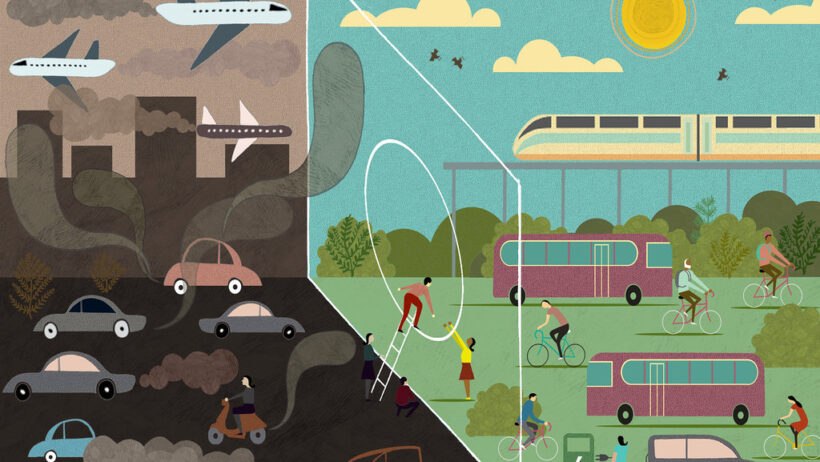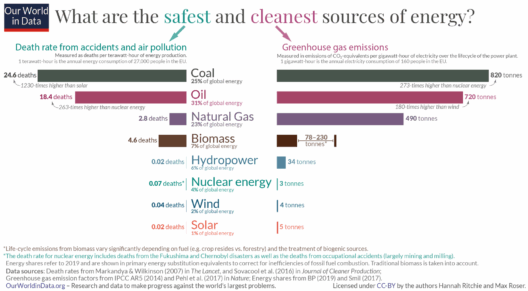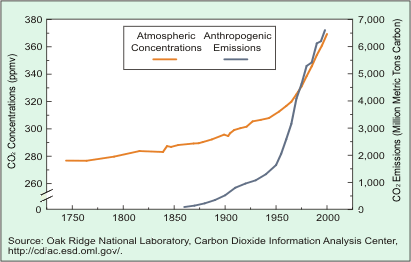The concept of a global footprint represents an intricate web of individual choices and their aggregate impact on the environment. As climate change escalates and environmental degradation becomes increasingly evident, understanding how our everyday actions contribute to global warming is paramount. This discourse explores the myriad factors that constitute our global footprint and draws connections to climate change, elucidating how even the simplest decisions can echo throughout the planet.
First and foremost, it is crucial to comprehend what a global footprint encapsulates. At its core, it refers to the total ecological impact of human activities, often quantified in terms of carbon emissions, resource consumption, and waste production. Each of us possesses a unique footprint defined by our lifestyle choices, including transportation, dietary habits, energy consumption, and consumer purchasing decisions. These choices, collectively, contribute to greenhouse gas emissions, which are the primary culprits driving global warming.
Transportation is a significant factor in this equation. The reliance on fossil fuel-powered vehicles has become a cultural norm in many societies, facilitating convenience but at notable environmental costs. Cars, trucks, and airplanes release copious amounts of carbon dioxide and other greenhouse gases into the atmosphere. While public transportation and cycling present eco-friendlier alternatives, the allure of personal vehicles often supersedes these options, illustrating a common hesitation to embrace sustainable practices. As cities evolve and urban sprawl extends, the environmental ramifications of our transportation choices grow more profound.
Furthermore, the impact of dietary choices should not be underestimated. Food production encompasses a vast environmental footprint, influenced by factors such as agricultural practices, livestock rearing, and food transportation. The consumption of meat, especially beef, is notably resource-intensive due to the substantial land and water required for livestock farming, along with the methane emissions produced during digestion. Conversely, adopting a plant-based diet not only minimizes personal carbon footprints but also can foster global shifts toward sustainability by reducing overall demand for environmentally taxing food sources.
Energy consumption in our homes and workplaces represents another major contributor to our global footprint. The sources of energy we choose—whether fossil fuels, nuclear, or renewable energies—directly impact carbon emissions. For instance, electricity generated from coal contributes to significant greenhouse gas emissions, while solar or wind energy represents a relatively clean alternative. Nonetheless, the transition to renewable energy requires personal advocacy and collective action, demanding a departure from conventional energy habits. Innovative technologies and energy efficiency upgrades in households can aid in reducing energy consumption, yet these changes require both intention and investment.
Equally essential is consumer behavior, particularly in terms of the products we purchase and their lifecycle impacts. The principle of consumerism perpetuates demand for goods that are often produced with little regard for environmental consequences. Fast fashion epitomizes this phenomenon, as cheap clothing is rapidly produced and disposed of, contributing vastly to waste and pollution. Conscious consumerism, characterized by deliberate choices regarding product sustainability, can help mitigate this cycle. By opting for quality over quantity, and supporting brands committed to ethical practices, consumers hold the power to spark systemic changes in production and distribution methods.
Waste management is another issue integral to our global footprint. The disposal of refuse, particularly plastic waste, presents a formidable challenge to environmental health. Landfills release methane, a potent greenhouse gas, as organic materials decompose. Furthermore, plastic pollution disrupts ecosystems and poses risks to wildlife. Recycling and composting can substantially diminish waste outputs, but these efforts require widespread societal participation. By promoting a culture of recycling and encouraging reductions in single-use plastics, communities can proactively address the waste crisis.
Moreover, the psychological dimensions of how and why individuals make choices regarding their footprints must be considered. Cognitive biases, societal norms, and cultural beliefs often dictate unsustainable practices, despite a growing awareness of climate issues. The allure of convenience often overshadows the long-term benefits of sustainability. For instance, despite the environmental implications of excessive disposable product use, societal pressures and marketing tactics continue to promote consumption. Shifting these deeply ingrained attitudes necessitates educational initiatives and community engagement aimed at fostering eco-conscious behaviors.
The interconnectedness of these elements—transportation, diet, energy, consumption, and waste management—highlights a profound truth: our individual actions are inextricably linked to global environmental trends. Each choice, no matter how minute it may appear, contributes to an overarching narrative of climate change. It is imperative to recognize the cumulative effects of personal decisions and acknowledge that individual agency can lead to substantial and positive global impact.
In conclusion, understanding your global footprint is akin to wielding a tool for change. By becoming cognizant of how our choices shape the environment, we can work toward reducing our carbon emissions and mitigating global warming. Every decision, from selecting sustainable transport options and conscious dietary changes to supporting eco-friendly products and minimizing waste, creates ripples in the larger environmental fabric. Collectively, these actions shape not just our environment but the future of our planet. Empowerment lies in knowledge and reflection, where each of us can contribute to a meaningful shift towards sustainability and help safeguard the Earth for future generations.







